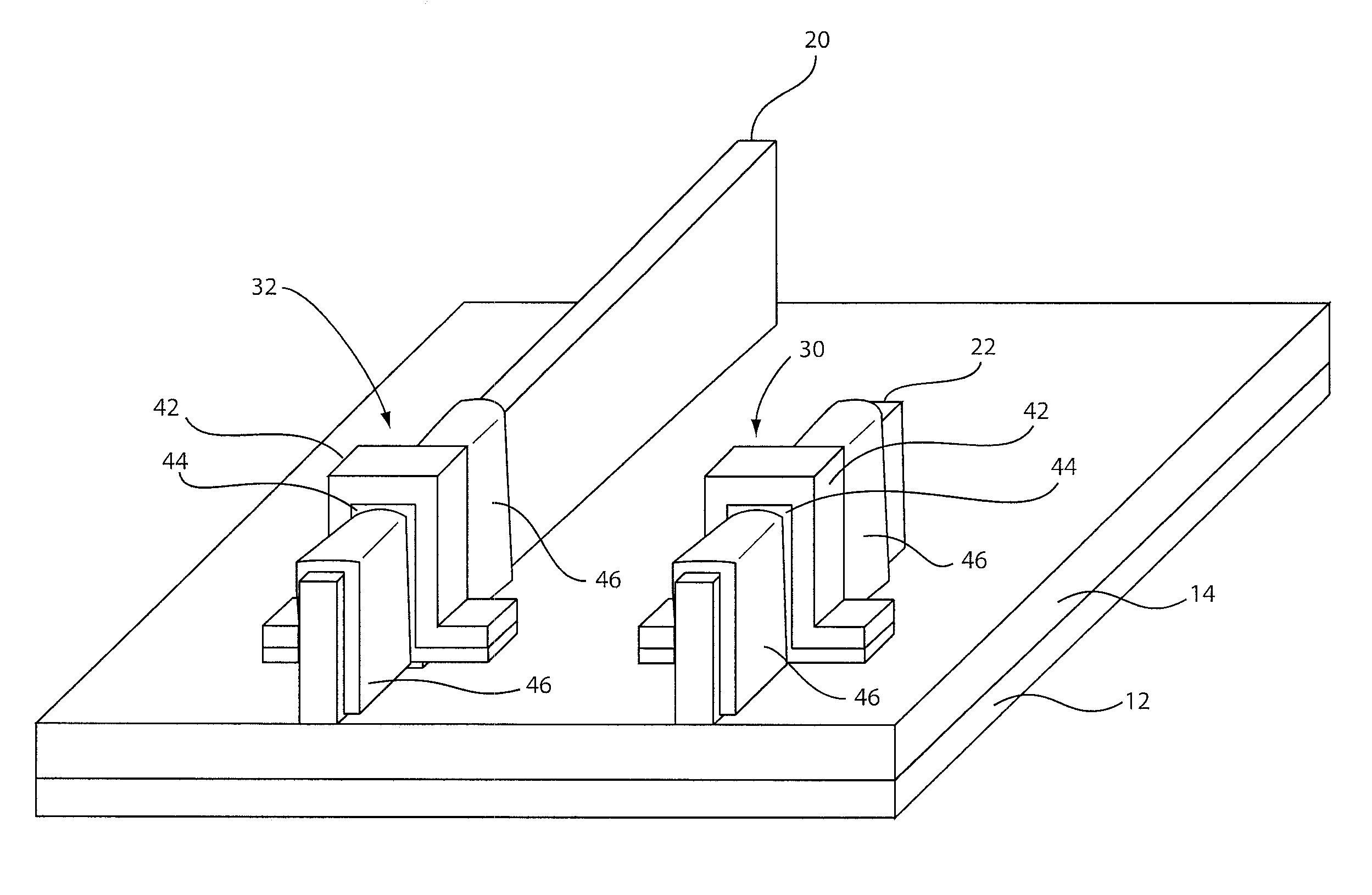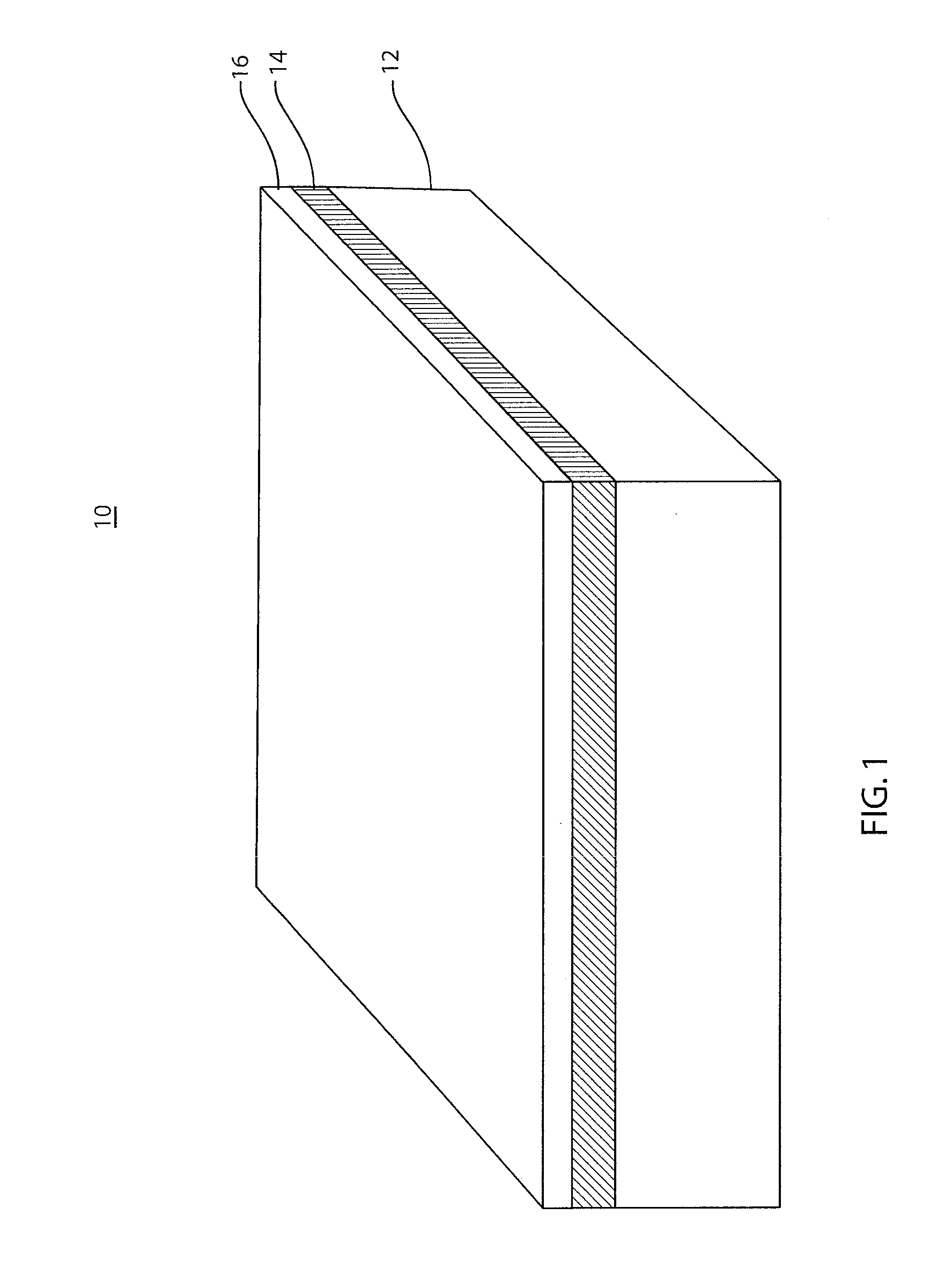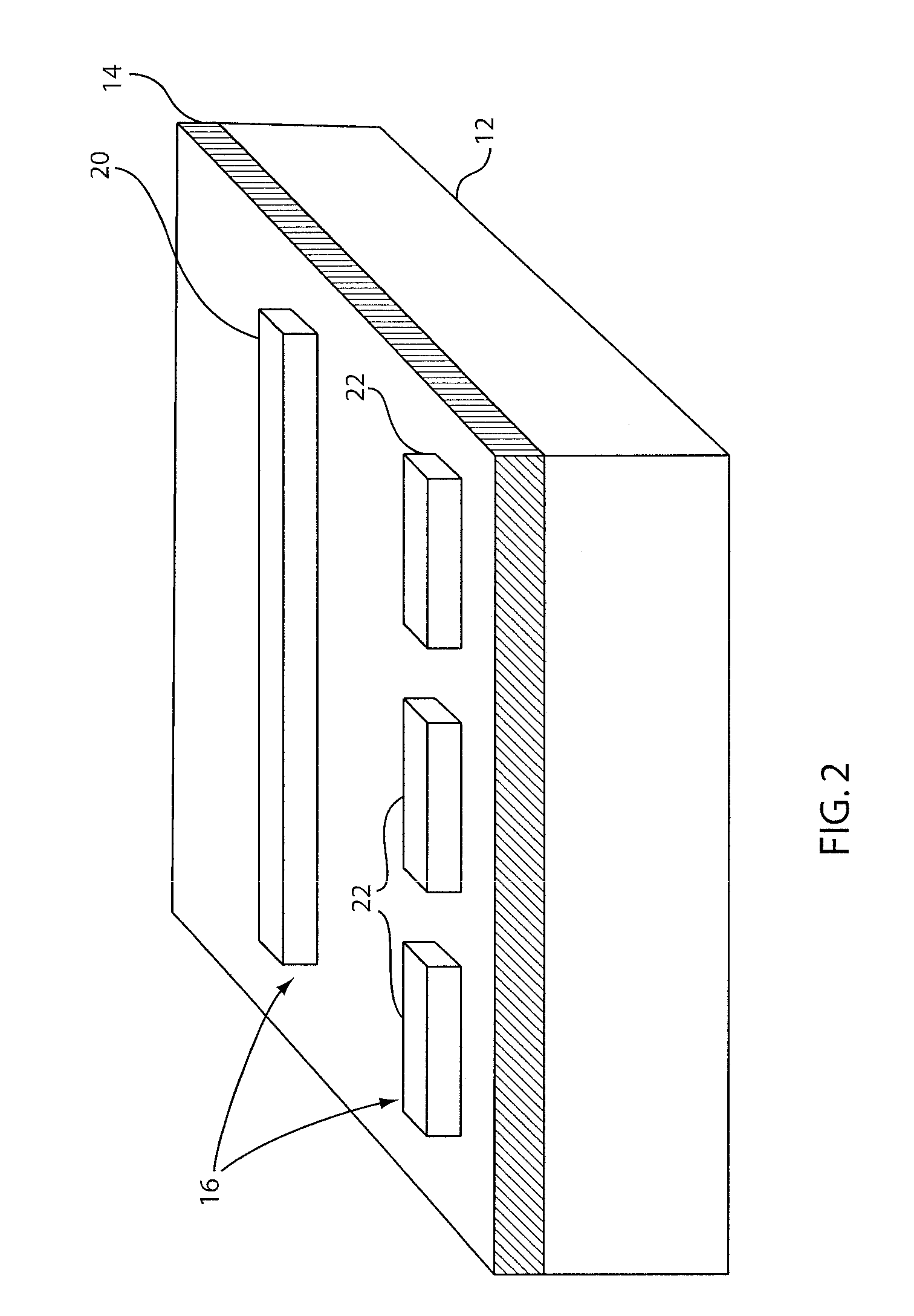Strained CMOS device, circuit and method of fabrication
- Summary
- Abstract
- Description
- Claims
- Application Information
AI Technical Summary
Benefits of technology
Problems solved by technology
Method used
Image
Examples
Embodiment Construction
[0023]In accordance with the present principles, a device, circuit and methods for fabricating both n-type field effect transistors (NFETs) and p-type field effect transistors (PFETs) on a same substrate with desired strains for both NFET and PFET devices is provided. In one embodiment, an n-channel metal oxide semiconductor field effect transistor (MOSFET) is fabricated on uniaxially strained Si, wherein the uniaxial tensile strain is achieved by preferential relaxation of global biaxial strain, and a p-channel MOSFET is fabricated on relaxed Si or uniaxially strained Si, wherein uniaxial strain is achieved by local strain engineering, and both device polarities are fabricated on the same substrate. Methods for fabricating these devices are also disclosed.
[0024]One way to achieve enhanced NFET and PFET performance on the same chip is to integrate uniaxially strained SiGe and Si islands on the same substrate, which uses preferential epitaxial growth or layer removal and / or additiona...
PUM
 Login to View More
Login to View More Abstract
Description
Claims
Application Information
 Login to View More
Login to View More - R&D
- Intellectual Property
- Life Sciences
- Materials
- Tech Scout
- Unparalleled Data Quality
- Higher Quality Content
- 60% Fewer Hallucinations
Browse by: Latest US Patents, China's latest patents, Technical Efficacy Thesaurus, Application Domain, Technology Topic, Popular Technical Reports.
© 2025 PatSnap. All rights reserved.Legal|Privacy policy|Modern Slavery Act Transparency Statement|Sitemap|About US| Contact US: help@patsnap.com



